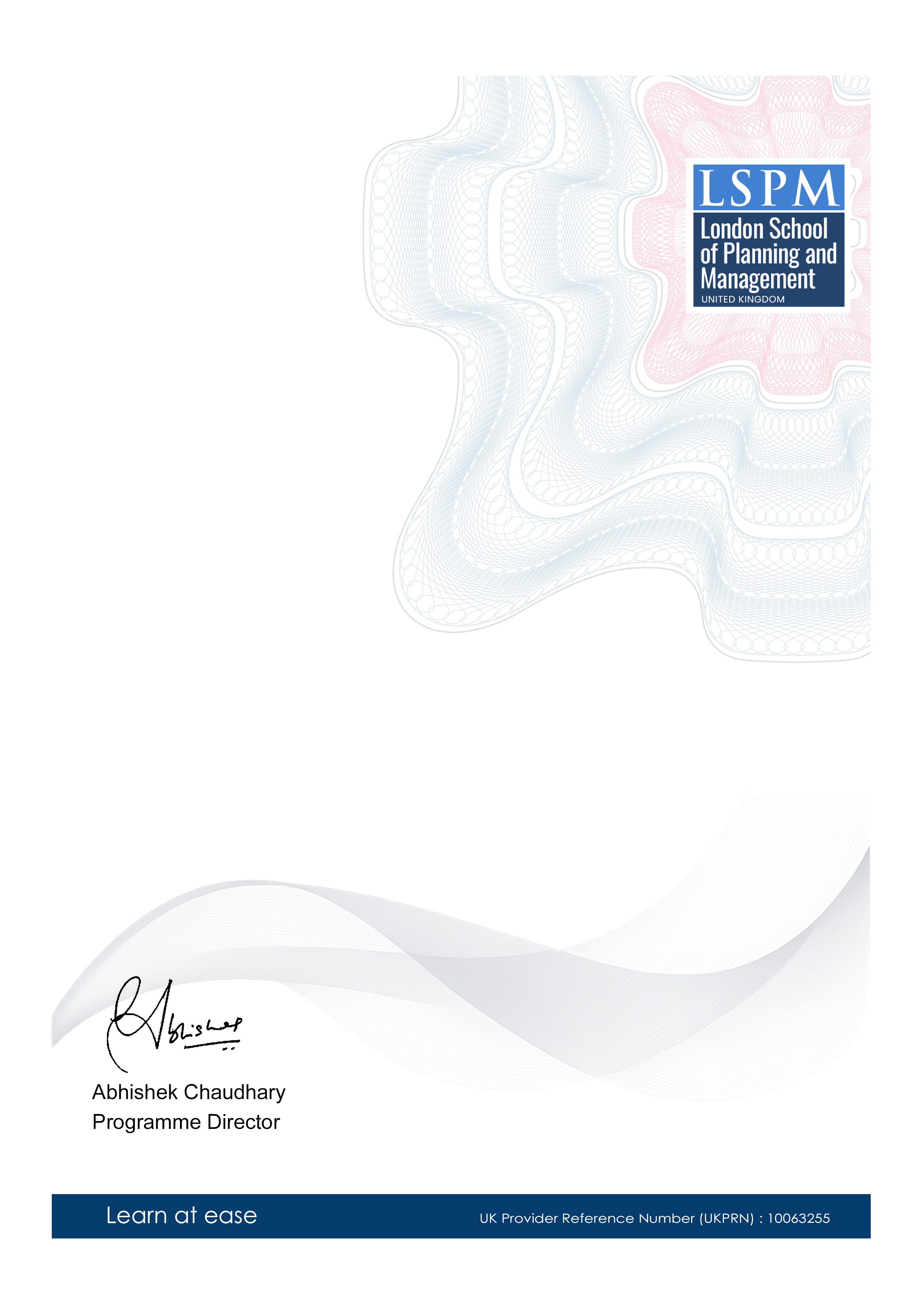Advancing in Finance with Professional Undergraduate Certificate in Skills for Employment and Study in Business Management and Computing
-- viewing nowThe Professional Undergraduate Certificate in Skills for Employment and Study in Business Management and Computing, focusing on Advancing in Finance, is a vital course designed to enhance your financial expertise. This certificate program is crucial due to the increasing industry demand for professionals who can manage complex financial decisions in today's rapidly changing business environment.
5,395+
Students enrolled
GBP £ 149
GBP £ 215
Save 44% with our special offer
About this course
100% online
Learn from anywhere
Shareable certificate
Add to your LinkedIn profile
2 months to complete
at 2-3 hours a week
Start anytime
No waiting period
Course details
• Financial Management: This unit will cover the fundamental concepts of financial management, including financial planning, budgeting, and financial statement analysis. Students will learn how to make sound financial decisions that can help organizations achieve their strategic objectives. • Corporate Finance: This unit will delve into the more advanced concepts of corporate finance, such as capital structure, dividend policy, and mergers and acquisitions. Students will learn how to evaluate investment opportunities and manage financial risk in complex business environments. • Investment Analysis: This unit will focus on the principles of investment analysis, including time value of money, portfolio theory, and security analysis. Students will learn how to evaluate different investment opportunities and make informed decisions that can maximize returns and minimize risk. • Risk Management: This unit will explore the different types of risks that organizations face and the strategies used to manage them. Students will learn how to identify, assess, and prioritize risks and develop effective risk management plans. • Financial Markets and Institutions: This unit will provide an overview of the financial markets and institutions that facilitate the flow of funds between savers and borrowers. Students will learn about the different types of financial instruments and the institutions that issue them, as well as the regulatory framework that governs their operation. • International Finance: This unit will examine the unique challenges and opportunities associated with conducting financial transactions across national borders. Students will learn about foreign exchange rates, international trade, and the risks associated with cross-border investments. • Financial Econometrics: This unit will introduce students to the statistical techniques used to analyze financial data. Students will learn how to estimate financial models, test hypotheses, and forecast future financial outcomes. • Derivatives and Financial Instruments: This unit will cover the advanced concepts of derivatives and other financial instruments used to manage financial risk. Students will learn about options, futures, swaps, and other derivatives and how they can be used to hedge financial risks and generate profits. • Behavioral Finance: This unit will explore the psychological factors that influence financial decision-making. Students will learn about cognitive biases, heuristics, and other factors that can affect financial judgment and decision-making and how to overcome them. • Ethics in Finance: This unit will examine the
Career path
Entry requirements
- Basic understanding of the subject matter
- Proficiency in English language
- Computer and internet access
- Basic computer skills
- Dedication to complete the course
No prior formal qualifications required. Course designed for accessibility.
Course status
This course provides practical knowledge and skills for professional development. It is:
- Not accredited by a recognized body
- Not regulated by an authorized institution
- Complementary to formal qualifications
You'll receive a certificate of completion upon successfully finishing the course.
Why people choose us for their career
Loading reviews...
Frequently Asked Questions
Course fee
- 3-4 hours per week
- Early certificate delivery
- Open enrollment - start anytime
- 2-3 hours per week
- Regular certificate delivery
- Open enrollment - start anytime
- Full course access
- Digital certificate
- Course materials
Get course information
Earn a career certificate

